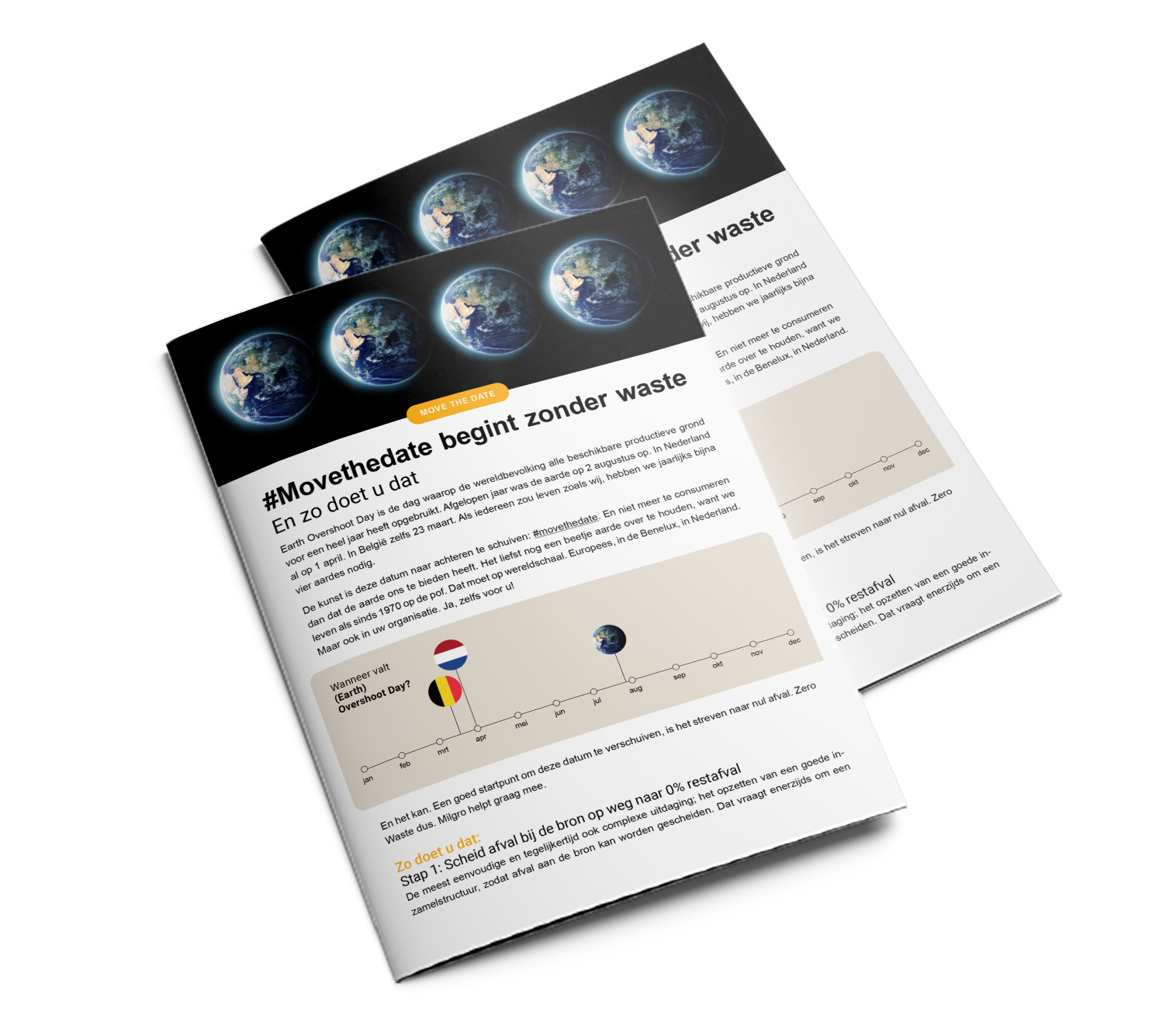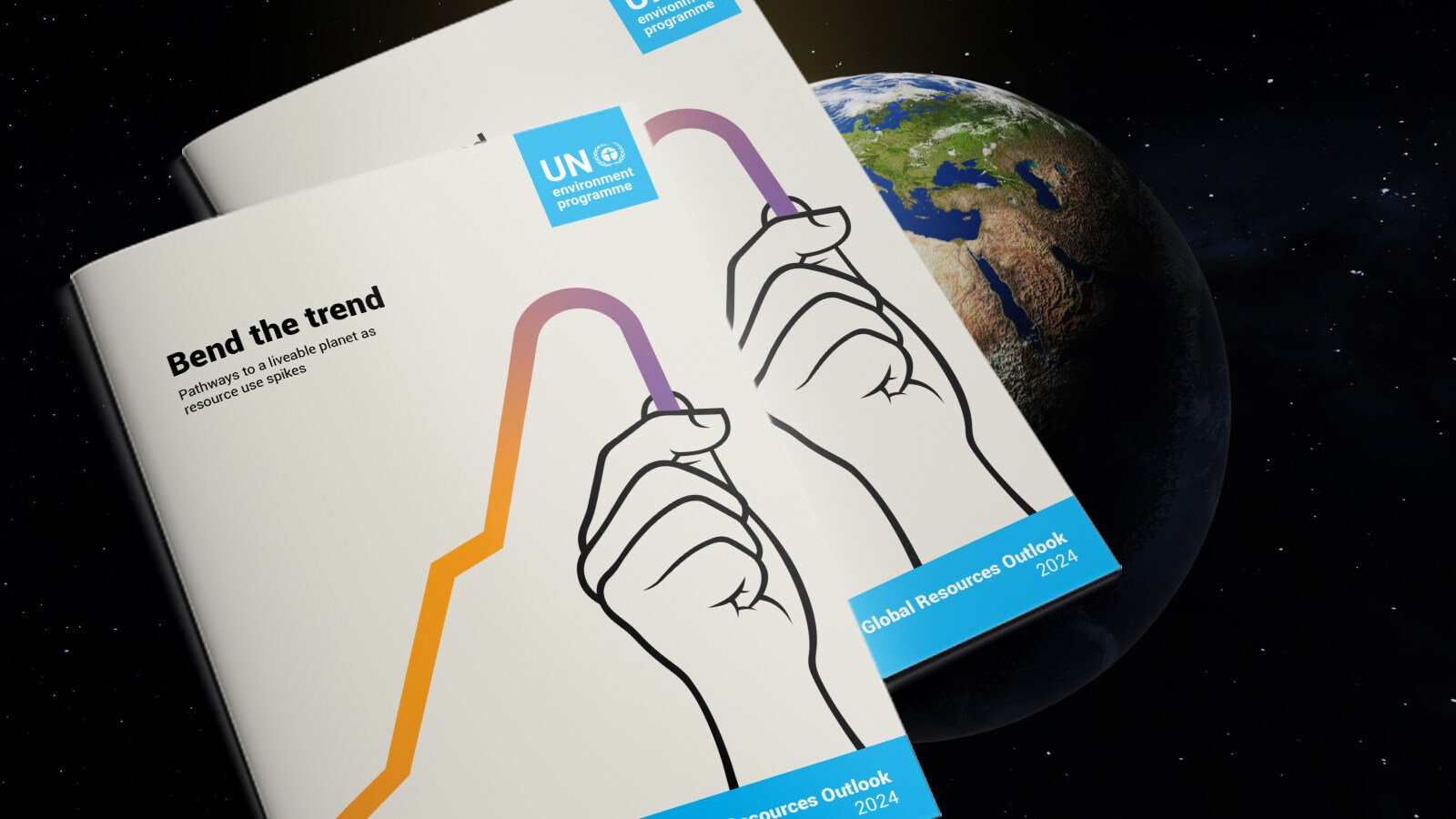Global resource consumption is the primary cause of the climate crisis. If we continue as we are now, without new policies, global resource use will increase by 60% by 2060. This is one of the main conclusions from the report 'Bend the Trend'. The report is 181 pages long, therefore, we have made a brief summary for you with the key points.
In addition to the less positive message that emerges from the findings, we will discuss the calls to action and recommendations of the report, and how you can concretely implement them. Together, we can break the trend and prevent further depletion of the Earth.
What is the ‘Bend the Trend’ report?
The report 'Bend the Trend' was recently published by the International Resource Panel (IRP), a global platform for science and policy of the UN Environment Programme. The trend highlighted is our global resource consumption. The increase appears unsustainable, and we are exceeding planetary boundaries, which causes problems for the environment as well as socially, according to the IRP.
Key Findings of the 'Bend the Trend' Report
Our current resource consumption exceeds planetary boundaries, especially for biodiversity, nitrogen and phosphorus cycles, and land use. These are ecological issues that deteriorate the environment. However, the report also indicates that the consequences of our high resource consumption are social as well as ecological worldwide. For example, this trend poses threats to human health and well-being.
Therefore, the report emphasizes the importance of a just transition that considers the impact on vulnerable groups. The resource crisis increases the costs of basic needs, such as food and water, which particularly affects vulnerable communities.
Additionally, the report states that international inequality arises between countries. Wealthy industrialized countries use significantly more resources than other countries and have thus contributed a larger share to the climate crisis. Often, these wealthy countries are not the most vulnerable to storms, floods, or extreme droughts and already experience the direct consequences of the climate crisis. The UN's call to action to reduce resource consumption applies especially to these affluent Western countries. This is a clear and direct call to action, including for companies in these countries.

From 'Bend the Trend' to Resource Transition
The findings of the IRP are relevant to businesses in two key ways. Firstly, resource scarcity leads to rising costs and delivery times. Secondly, there will be increasingly greater risks for businesses due to climate change and biodiversity loss. For example, consider a flood that puts a factory underwater or extreme weather that makes business processes vulnerable.
How can businesses protect themselves against these risks? For that, we now delve into the recommendations of the UN report.
Recommendations from the report
The report emphasizes the need for ambitious and comprehensive measures and makes five recommendations: this is how we break the trend.
- The first recommendation is to transition to a circular economy to reduce resource use through reuse, repair, and recycling.
- Reducing resource consumption can also be achieved by increasing efficiency. This is the second recommendation. It means doing the same or even more with less. The amount of resources required to manufacture and use a product must be reduced.
- Thirdly, changing consumption patterns is mentioned. We consume excessively, and this needs to change to prevent the wastage of resources. This recommendation is aimed at both consumers and businesses. To adjust consumption patterns as a business, purchasing practices can be examined. For example, you can engage in circular purchasing and use R&D to achieve lower resource usage per product.
- Investing in innovation is the fourth recommendation. It encourages the development of new technologies and practices for sustainable resource management.
- Finally, the report mentions the fifth recommendation: the importance of cohesive and stable international governance. Good international cooperation around sustainable resource extraction will bend the trend more effectively and quickly.
Overall, all the recommendations call for mutual knowledge exchange.
The recommendations outlined offer a comprehensive approach to breaking the trend of resource consumption and the associated risks of scarcity.
The report concludes by emphasizing that this research aligns with the growing body of scientific assessments from organizations such as the IPCC, IPBES, GEO, WHO en the World Bank. In their words, it is yet another package of evidence and knowledge about the climate crisis and a necessary call to take climate action.
Milgro and the 'Bend the Trend’ report
If the report makes one thing clear, it's that our current use of resources impacts many (ecological) sub-areas. At Milgro, we advocate for careful management of our natural capital, the stock of resources the world provides us. We do this from the broader perspective emphasized in the report.
The urgency is there: we are currently using more Earths than we have in a year. Earth Overshoot Day falls earlier each year. And while the consequences will only become truly visible to future generations, it is clear that the current system cannot be sustained.
Moving the date of Earth Overshoot Day back to December 31 aligns seamlessly with Milgro's mission to have the world waste-free by 2024. When resources are reused repeatedly and ideally indefinitely, our natural capital is preserved. This not only ensures that supply chains are closed, making businesses and thus the economy sustainable for the future. It also provides better socio-economic and ecological perspectives. And it is precisely this broad view, as endorsed by the report, that is our driving force to accelerate the resource transition together.
How do we do this? By step by step examining how organizations can make their waste streams more sustainable. By looking at optimizations on the waste hierarchy for each stream. With the goal of reducing waste and thus avoidable waste. And by introducing every inevitable waste stream as an input stream elsewhere. In this way, we ensure together that resources no longer become waste and retain their value in and for the future. And we bend the trend, in line with the recommendations in the report.

Ready to get started with the 'Bend the Trend' initiative?
Your company can also contribute to shifting Earth Overshoot Day. Curious how? We are happy to offer you the necessary support. Download our free #movethedate action plan, where we outline the steps your company can take on the path to #movethedate.
Stay informed
Stay up to date on all new developments? Follow us on LinkedIn or Instagram. Or subscribe to the newsletter. Are you curious about what Milgro can do for your operations and waste process? Contact us










